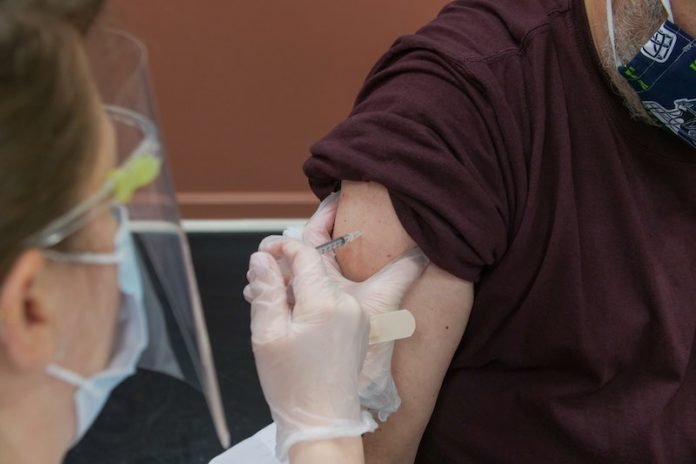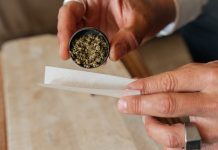
More Americans seem to be heeding the latest scientific evidence pointing to COVID-19 booster shots as a boon to our immune systems and as protection against serious illness from SARS-CoV-2 infection, especially as the virus continues to mutate.
But while some surveys show the number of people getting boosters is rising, the U.S. Centers for Disease Control and Prevention has said that less than 40 percent of fully vaccinated Americans eligible for a booster shot have received one, despite mounting evidence of the effectiveness of booster shots in fighting the contagion.
The CDC data, for example, showed that in December unvaccinated Americans 50 years and older were about 45 times more likely to be hospitalized than those who were vaccinated and got a third shot.
Questions remain on which vaccine type to get, whether to mix and match types, and how soon after a breakthrough infection to get boosted.
To untangle some of these uncertainties, Harvard Medicine News spoke with Jonathan Li, associate professor of medicine at Harvard Medical School and Brigham and Women’s Hospital.
Li is also a member of the NIH COVID-19 Treatment Guidelines Panel and the HMS-led Massachusetts Consortium on Pathogen Readiness (MassCPR).
HMNews: One person is fully vaccinated and has received a booster, while another is fully vaccinated but has not received a booster. What level of protection does each now have?
Li: It’s becoming clear that against the omicron variant, you really need three vaccine doses in order to achieve the best level of protection. Two doses are not enough.
This is why the CDC now states that a third vaccine dose is needed in order to be considered up to date for COVID-19 vaccinations.
HMNews: How soon after a breakthrough infection should a person get a booster shot?
Li: Great question. Breakthrough infections will no doubt boost antibody titers and immune responses, even beyond levels achieved from two shots of an mRNA vaccine.
However, the extent of immunity conferred by natural infection really varies person to person. The vaccines provide high-level immune responses that are dependable and the immunity is longer lasting.
This is why we recommend that our patients go ahead and receive their next shot as soon as they feel confident that they have recovered from their COVID-19 infection.
HMNews: What about mixing and matching vaccines?
Li: We know that the mRNA vaccines Moderna and Pfizer work great as a booster dose regardless of the initial vaccine used.
This is what most people should use, unless they had a severe reaction or have another reason to prefer the J&J vaccine.
HMNews: Is there a scenario under which clinicians might suggest that a vaccinated individual should not get a booster?
Li: Individuals need to wait at least five months since their initial shots, and those who had a severe allergic reaction should talk to their doctor before attempting to get another shot.
HMNews: There are indicators that omicron is reaching its peak. Does this change the calculus on the importance of getting a booster?
Li: While it’s certainly great news that the omicron wave appears to be peaking and declining across the U.S., now is not the time to let our guard down.
I expect that just as many people are going to be infected on the downslope as were infected on the upslope of the omicron wave.
Receiving the booster dose of the vaccine is still the best way to protect yourself from severe disease.
HMNews: What does the virus’s continued evolution mean for the future of vaccines?
Li: This virus continues to surprise us. It’s hard to know what the future holds, but making sure that everyone is up to date on their vaccines is the best way to prevent new variants from emerging.
Written by DENNIS NEALON.
If you care about Covid, please read studies that current COVID-19 vaccines cannot effectively prevent omicron infection, and even symptom-free, people with Omicron are much more likely to spread COVID.
For more information about health, please see recent studies about when will the omicron surge be over, and results showing that some at-home COVID-19 tests may fail to detect omicron early.



